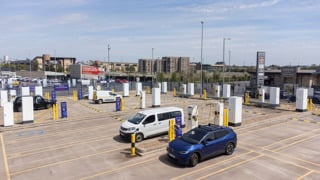AFCO chairman John Pryor shares his views on the impacts of 'big data' on fleet operators and company car drivers
The introduction of the connected car and so-called ‘big data’ is set to change the long-established fleet management model.
That change will have to be managed, while fleet decision-makers grapple with the impact of numerous other issues.
They include: the viability of diesel as a fleet fuel amid air quality concerns; the impact of Brexit; Government consultations on issues including currently on business expenses –which could see changes to long-established employee mileage allowances; and September’s introduction of the Worldwide Harmonised Light Vehicles Test Procedure (WLTP).
What’s more, the recent hacking of NHS computer systems in the UK and other organisations’ systems worldwide has raised security fears around vehicles and the data collected.
We are on the tip of an iceberg. The arrival of ‘big data’ will have a major impact on fleet operations and company car drivers, as ACFO members heard recently at its spring ‘Big Data – Big Seminar’ event.
Today’s connectivity is the start of the journey towards the autonomous car and while the secure exchange of data builds the foundations for new business activities and applications, there are significant risks and challenges regarding safety, security and privacy that need to be addressed.
Supporters of ‘big data’ point to benefits that include reduced fleet vehicle downtime, safety and duty of care improvements and the early detection of faults and wear and tear before components ‘break’, thus reducing fleet service, maintenance and repair costs so aiding improved budgeting.
Furthermore, it will change the relationship between motor manufacturers, the vehicle leasing and fleet management industry, fleet decision-makers and company car drivers.
It is critical that motor manufacturers and the contract hire and leasing industry work together – and involve ACFO – as ultimately fleet managers are their customers.
Fleet managers want clarity; they want to understand how suppliers – vehicle manufacturers and contract hire and leasing companies – will access and use ‘big data’. Critically, they want to know who owns the information sourced from ‘intelligent’ vehicles.


















Login to comment
Comments
No comments have been made yet.